Incubating future movements in travel and culture
Words Frankie WechslerImages Anka Gujabidze
It’s difficult to place the music of London-based Japanese experimental vocalist Hatis Noit. Her otherworldly, transcendent music unites “Gagaku,” Japanese classical music, with opera and Gregorian chants, intertwined with avant-garde and pop musical influences as well as ambient self-gathered field recordings. A self-taught singer-songwriter, Hatis Noit creates her distinctive choir-like sound by combining ethereal layers of improvised, lyric-less vocals—all in an effort to connect with memory, the past, and the subconscious.
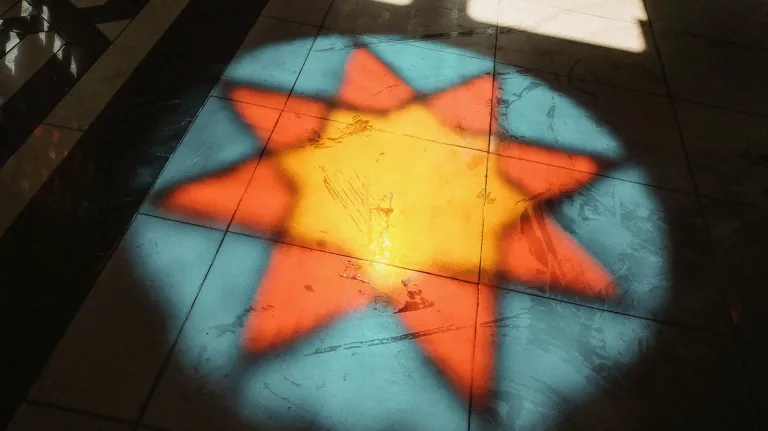
Raised in Hokkaido, she decided to become a musician at age 16 after a life-changing experience while trekking to Lumbiniin Nepal, the birthplace of the Buddha. While staying at a temple she heard a female nun outside singing Buddhist chants—it opened her up to the potential of the voice as an instrument to connect both with our own humanity and the greater cosmos. Her stage name references the stem of the lotus flower, which is seen as a symbol in Japanese folklore connecting the living with the spirit world.
She released her first EP, “Illogical Dance,” in 2018 and has collaborated with the NYX Electronic Drone Choir, Björk-collaborators Matmos and Kevin Martin aka The Bug. David Lynch invited her to perform at Manchester International Festival, and she performed with the London Contemporary Orchestra at the Southbank Centre in December 2019. We connected with her at Further Kazbegi: The Magic Mountain to talk about collective consciousness and the power of music to influence our wellbeing.
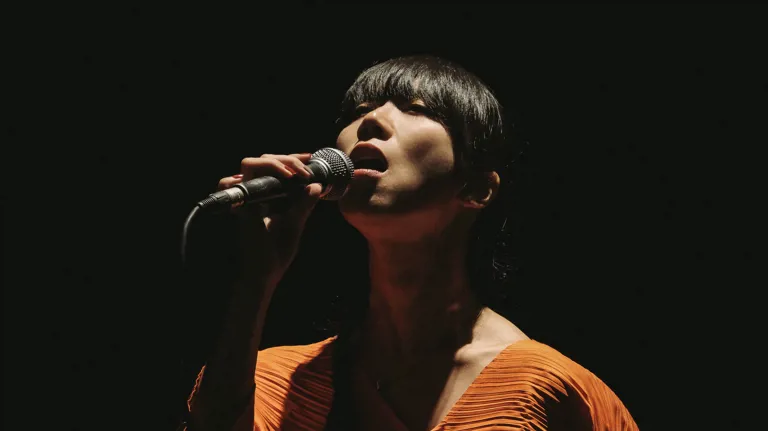
How do you view the connection between music and wellbeing?
Hatis Noit: As an artist and singer, I think music and art always help us. They help me find myself. It’s a very deep place, because every time I make my music or sing, I, of course, have to be very focused on myself. As the performer, I have to connect to the space. So that helps me be in a state of meditation, a very, very deep state of consciousness. I think it helps us to find that space, when life is so busy nowadays for everyone. It's easy to lose ourselves, and then we ask: “Who are we? Who am I? Where are we?” It's really hard to feel that we are actually in the space where we are. So when we make music, or listen to music, or enjoy art in general, it always helps people to come back to who we are. Otherwise we can really easily lose ourselves.
How important is your connection with the audience?
Noit: I strongly feel the connection between the artist and the audience and space. The music is not my property alone, because together we are creating a moment in the space. Every time I sing, I sing different songs. Of course, I sing the same melody, but every time it is different. It can't be always the same. We always create the moment, and music and art all together. And I almost subconsciously feel the audience’s emotion or mood in that space. That's very important for me, to feel this.
As an artist, do you think the arts should be more integrated into the hospitality sphere?
Noit: Everything inspires our senses. We have five senses and everything inspires our senses to make our life richer. I'm really happy to collaborate with people in different industries, like hospitality. My field is music and singing, others are very good at designing spaces, or at making beautiful food or at making really good scents—or anything else, like lighting as well. So I believe we can all work together to make great experiences for people.
“Initially I held back a bit, and now I don’t feel the need to.”
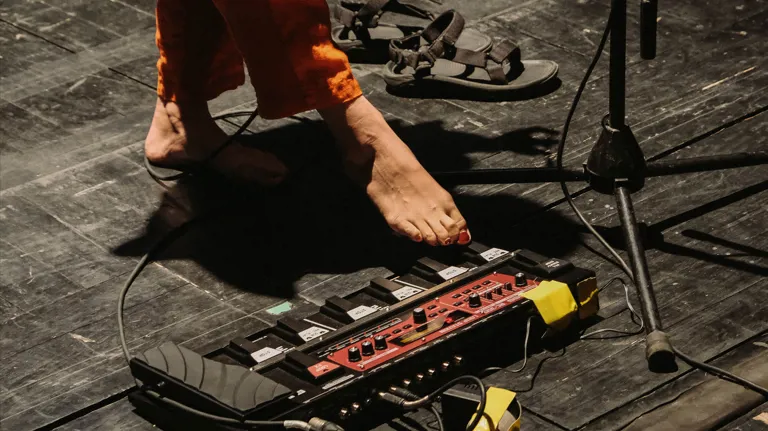
What does wellbeing mean to you?
Noit: To be able to feel eternal curiosity. Every day we can find something new and something that inspires us. And also to be able to catch it—because if our senses are closed off, we can’t grasp that beautiful information, even though it’s surrounding us. So yeah, having curiosity and being playful is important for me mentally and for my wellbeing.
What does the word consciousness mean to you?
Noit: Consciousness. Very interesting question. Usually consciousness is directed towards ourselves, like self-consciousness, but I think consciousness can mean something much wider. When I think, when I sing, when I perform—of course I can feel myself, this self-awareness, but at the same time, I can also feel the people in front of me. So consciousness means not only my own, it’s more like collective consciousness. I think to feel at that level of consciousness makes people happier, when they feel our connection. Consciousness should mean an awareness of our connection to each other, I believe.
The Magic Mountain
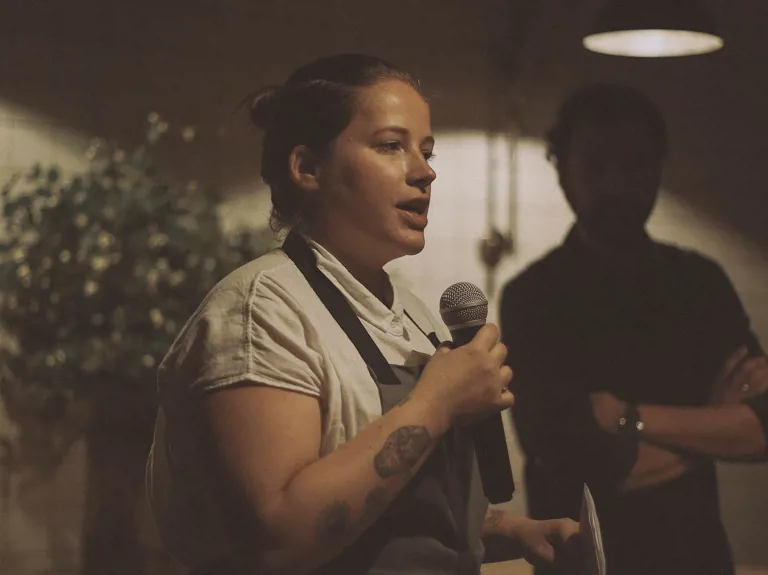
Named “Latin America’s Best Female Chef” for her pioneering take on Bolivian cuisine, the Noma alumna is bringing her progressive culinary philosophy back to her native Denmark.
The Magic Mountain
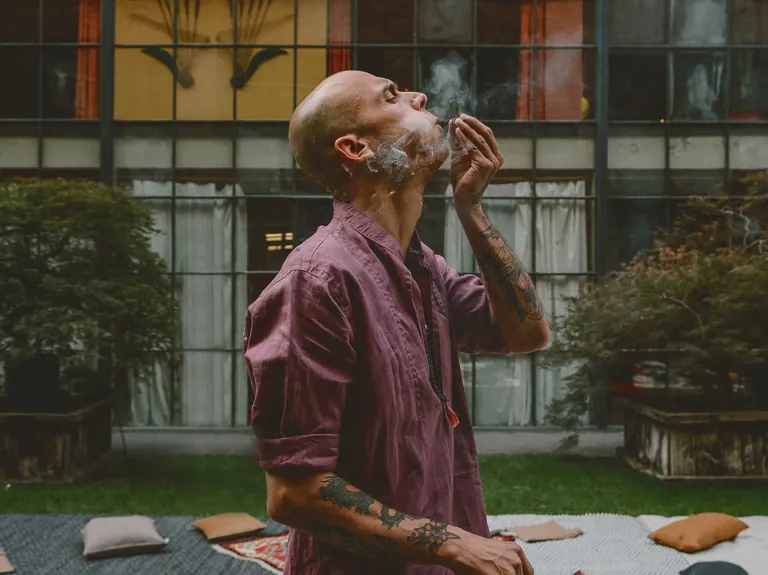
Breathwork master Sascha Zeilinger teaches a form of active breathing that he believes holds a key to healing and wellbeing.